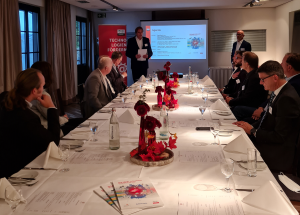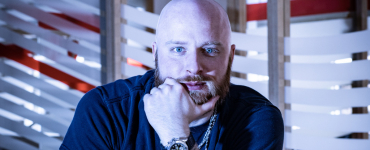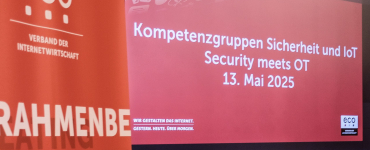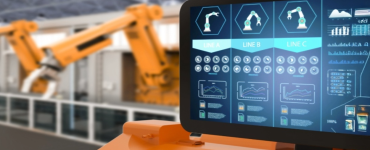The city of Cologne laid the foundations for its Smart City at an early stage. Having one of the largest fibre optic shares in Germany, the conditions for the digitalisation of schools, administration and mobility are excellent. Around 15 experts and decision-makers from industry, society and politics discussed possible drivers and concrete measures for the smartification of the city of Cologne on 7 October. They were invited to the Club Astoria by eco – Association of the Internet Industry.
“Smart cities are inevitably the future in the long term. But what do we have to do to promote smart cities so that we as citizens can benefit faster and better?” With this question, eco board member Prof. Dr. Norbert Pohlmann gave the first important impulse in his welcoming speech. In the various implementations of smart city concepts or projects that pave the way to the smart city, the focus must be on the citizens and the resulting benefits for them.

The recently published study “The Smart City Market in Germany: 2021-2026” by eco and Arthur D. Little shows the enormous potential of the smart city market and a considerable growth potential of over 17 percent annually. This corresponds to an increase in sales of over 46 billion Euro within the next five years.
Intelligent mobility concepts and a showcase settlement in changing times
Timo von Lepel, Managing Director of NetCologne, vividly illustrated that the basis of a smart city is an area-wide and close-meshed fibre optic network. By creating a sustainable infrastructure, a central basis for efficient scalability and replicability of smart city use cases should be established. Particularly in the area of mobility, the first projects such as the “ParkPilot” project in the Cologne district of Nippes is showing how traffic can be relieved and the parking situation in the surrounding area eased.
Lepel mentioned the “Stegerwaldsiedlung” Smart Quarter as another successfully implemented project in Cologne. Through a cloud-based intelligent settlement management system, various areas and topics of the Smart Quarter can be meaningfully linked with each other and thought across the board. For example, an intelligent energy management system is integrated, which achieved a CO2 saving of 72 percent in the neighbourhood through various measures and interfaces against the background of sustainability.
But the topic of mobility is also clearly in focus in the settlement; new and intermodal mobility offers as well as charging points to promote e-mobility and parking space booking options are part of the implementation in the neighbourhood.
According to von Lepel, smart city efforts should no longer be about individual projects, “Germany must have the courage to act. Smart city initiatives will succeed if cross-segmental thinking is done in alliances and partnerships.”
No patent remedy for Smart Cities
In the discussion, it quickly became clear that there is no one recipe and no one successful way to implement a smart city; cities need to try things out and find out which way works.
An important factor is the pooling of expertise. Partnerships and alliances can not only create new opportunities, but also innovative models from which all sides can benefit. To enable such partnerships, it is essential to bridge the gap between industry and authorities in terms of expectations, implementation, funding and application. In this regard, intensive dialogue at eye level is indispensable in order to advance smartification and to be able to take new paths towards the smart city. This is the only way to form goal-oriented partnerships and prioritise the topic of smart cities.
Mobility offers must be designed better and more intelligently
Prof. Norbert Pohlmann gave another exciting impetus to the discussion with the question “Do we need mobility as it is?”, against the background that mobility is becoming more and more a technology issue, with the focus on intelligent networking: It is no longer people who go on journeys, but data – the key phrase here being “the new normal”.
The participants agreed that in the future, mobility must be increasingly thought of in cross-sectoral terms. New mobility concepts would have to be developed involving air, water, road, and rail.
However, there were discrepancies in the ways of approaching the smart city context. Two positions emerged. On the one hand, there was the view that mobility was decided in the cities. On the other side was the opinion that cities can certainly be a driver of mobility concepts, but that the rural regions must be integrated and thought about from the beginning.
In principle, however, it is important to make public transport and other mobility services better and more intelligent.
With its new Mobility Competence Group, the eco Association is creating a platform for exchange and for shaping future mobility. The questions and topics discussed at the Roundtable on Mobility will be addressed here.
The foundation must be used
“A paradigm shift is necessary: From funding and individual projects to actual application and implementation,” says Dr Bettina Horster, Director of IoT at eco Association and board member of VIVAI Software AG. It is also necessary that the Smart City topic is thought about and implemented in the long term; a 5-year project can be neither sustainable nor purposeful.
In conclusion, Markus Schaffrin, Head of Member Services at the eco Association, once again emphasised how important “the formation of partnerships and alliances is as an impetus for smart city development” and that the eco Association will continue to link representatives from industry, society and politics in order to specifically promote the topic.





